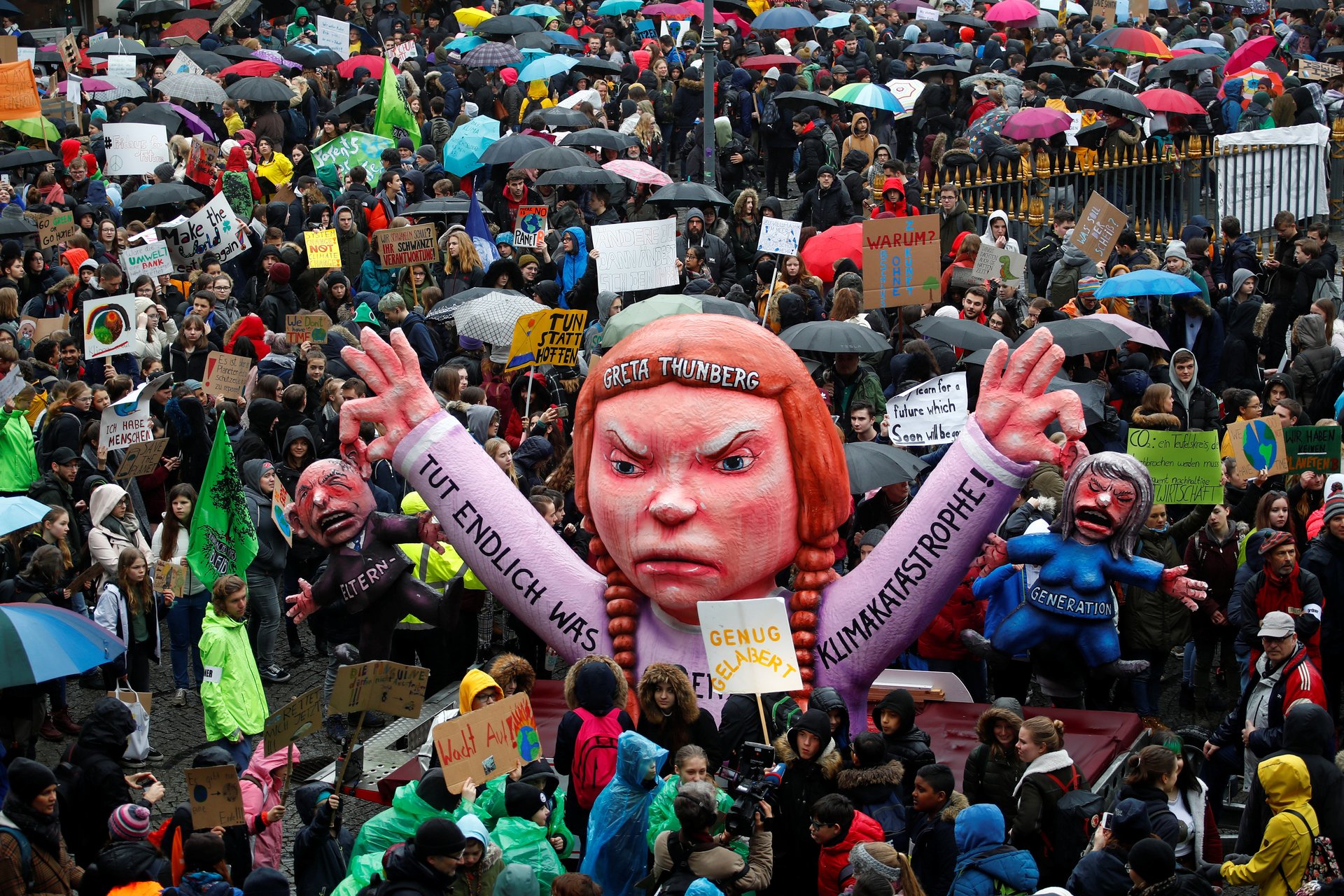A teenage environmentalist has riled up the OPEC oil cartel
The world’s largest oil-producing nations have a few words for a five-foot-nothing Swedish schoolgirl: back off.


The world’s largest oil-producing nations have a few words for a five-foot-nothing Swedish schoolgirl: back off.
Speaking at the OPEC annual meeting in Vienna, Austria, the group’s general secretary, Mohammed Barkindo, spoke out about the “growing mass mobilization of world opinion…against oil,” and a climate in which “civil society is being misled to believe oil is the cause of climate change.” A particular concern, he added, was climate change campaigners, whom he described as “perhaps the greatest threat” to the prospects of the oil industry. The children of key OPEC staff feared for their own futures as their peers took to the street to campaign “against this industry,” he said.
While he did not name her directly, Barkindo appeared to be making reference to Greta Thunberg, the 16-year-old climate change activist who started the now global school strike movement. Thunberg addressed his comments in a tweet, thanking him for his words.
Since Thunberg began her personal strike in November 2018, millions of children around the world have skipped school on a Friday to protest what they see as the “inaction” of legislators that “threatens our entire civilization.” In an open letter in the Guardian published in March, Thunberg and 149 other students from the strike’s global coordination group promised that they would not stop until there was “climate justice.”
We demand the world’s decision-makers take responsibility and solve this crisis. You have failed us in the past. If you continue failing us in the future, we, the young people, will make change happen by ourselves. The youth of this world has started to move and we will not rest again.
The following month, in its prospectus (pdf) for an international bond offering, the national oil company of Saudi Arabia cited climate change activists or potential related lawsuits as possible risks to its business. In the document, Aramaco noted a possible shift in “public sentiment,” which could in turn lead to “government policies, laws and regulations, international agreements and treaties and other actions” reducing demand for hydrocarbons.
Such a change might be good news for the planet, and its inhabitants, but it’s decidedly bad news for oil barons, their offspring, and those who invest in their product.